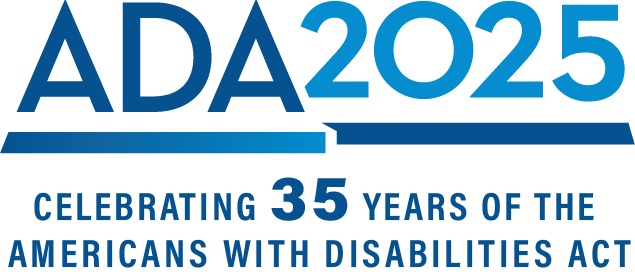The idea that every individual’s life has value is fundamental to the work of medical professionals. Yet too often, biases and misconceptions about disability can negatively affect the quality of care received by patients with disabilities.
For example:
- Research suggests that a patient’s disability can cloud medical professionals’ judgement on the effectiveness of starting or continuing life-sustaining treatments.
- Hospital policies, bioethical standards, and medical protocols can all too often limit and deny equal access to care and accurate information for people with disabilities.
- A lack of protocols and training for medical professionals can prevent parents from receiving accurate representations about the valuable lives of children with disabilities — representations that are not based on stereotypes or discriminatory quality of life assumptions
Ensuring equal access to organ transplants
In recent years, a handful of high-profile cases have highlighted the disparities faced by people with developmental disabilities needing organ transplants. These disparities have led states including California, Maryland, and New Jersey — to pass laws banning organ transplant discrimination on the basis of disability.
In September 2018, the U.S. Department of Health and Human Services Office for Civil Rights (OCR) received a complaint alleging that a doctor on staff at the University of North Carolina (UNC) Health Care System determined that an individual in need of a heart transplant was not a good candidate for the transplant simply because they had developmental learning disabilities and they did not live independently. OCR reached a successful resolution and UNC Health Care agreed that the individual’s medical records would be amended to clarify eligibility to be considered for placement on the transplant list.
OCR’s commitment
This is just one example of OCR’s ongoing work to address the disconnect between medical practice and the civil rights of people with disabilities. OCR enforces federal civil rights laws and rules. These laws protect people with disabilities from being denied medical care on the basis of stereotypes, assessments of quality of life, or judgments about a person’s relative “worth” based on the presence or absence of disabilities or age.
OCR protects rights by:
- Teaching health and social service workers about civil rights laws, conscience and religious freedom laws, health information privacy, and patient safety confidentiality laws;
- Educating communities about civil rights, conscience and religious freedom rights, and health information privacy rights; and
- Investigating civil rights, conscience and religious freedom, health information privacy, and patient safety confidentiality complaints to identify discrimination or violation of the law and taking action to correct problems.
In response to the COVID-19 pandemic, OCR issued a bulletinto ensure that entities covered by civil rights authorities are aware of their obligations under laws and regulations that prohibit discrimination on the basis of race, color, national origin, disability, age, sex, and exercise of conscience and religion in HHS-funded programs.
The Center for Dignity in Healthcare for People with Disabilities
In fall 2019, ACL funded a first-of-its-kind Center for Dignity in Healthcare for People with Disabilities (CDHPD) at the University of Cincinnati Center for Excellence in Developmental Disabilities. This $1.5 million, three year, investment will address the health disparities experienced by Americans with disabilities resulting from inequities in care.
The center is working to educate medical professionals about the civil rights and support needs of Americans with disabilities as they access routine and lifesaving care throughout their lives. Working with a coalition of eight national partners and stakeholders, the center is developing resources for medical professionals to address and prevent health care discrimination, including model policies and protocols. They are also developing resources for reporting healthcare discrimination and partnering with people with intellectual and developmental disabilities (I/DD) and their families to develop advocacy resources.
The center will develop resources, including:
- Gap analysis summary describing medical discrimination issues impacting people with I/DD
- Stakeholder panel report
- Protocols on key issues
- National dissemination plan
- Systemic plan for reporting health care discrimination
- Expansion of a toolkit for medical professionals regarding equitable health care for individuals with I/DD
- Policy guide about civil rights in medical settings for self-advocates and families
National Council on Disability bioethics reports
In 2020, the National Council on Disability (NCD) issued a series of bioethics reportsexploring how biases and assumptions in organ transplantation, physician-assisted suicide, genetic testing, quality-adjusted life years, and medical futility impact people with disabilities. Original research, stakeholder and scholar interviews, literature reviews, reviews of media reports, and legal analysis are used to examine each topic.

